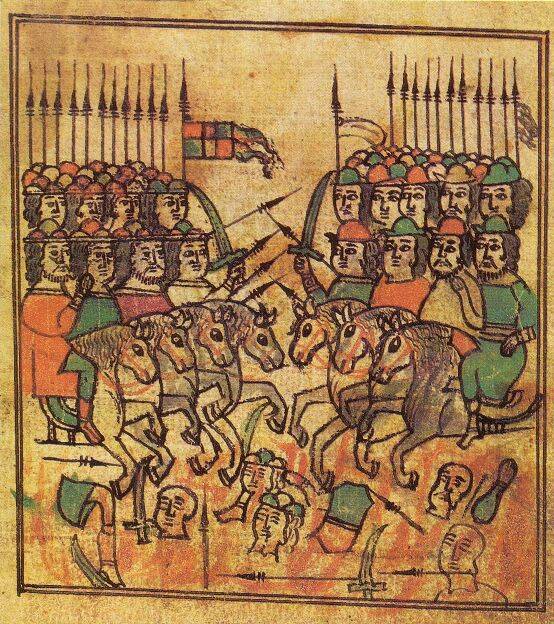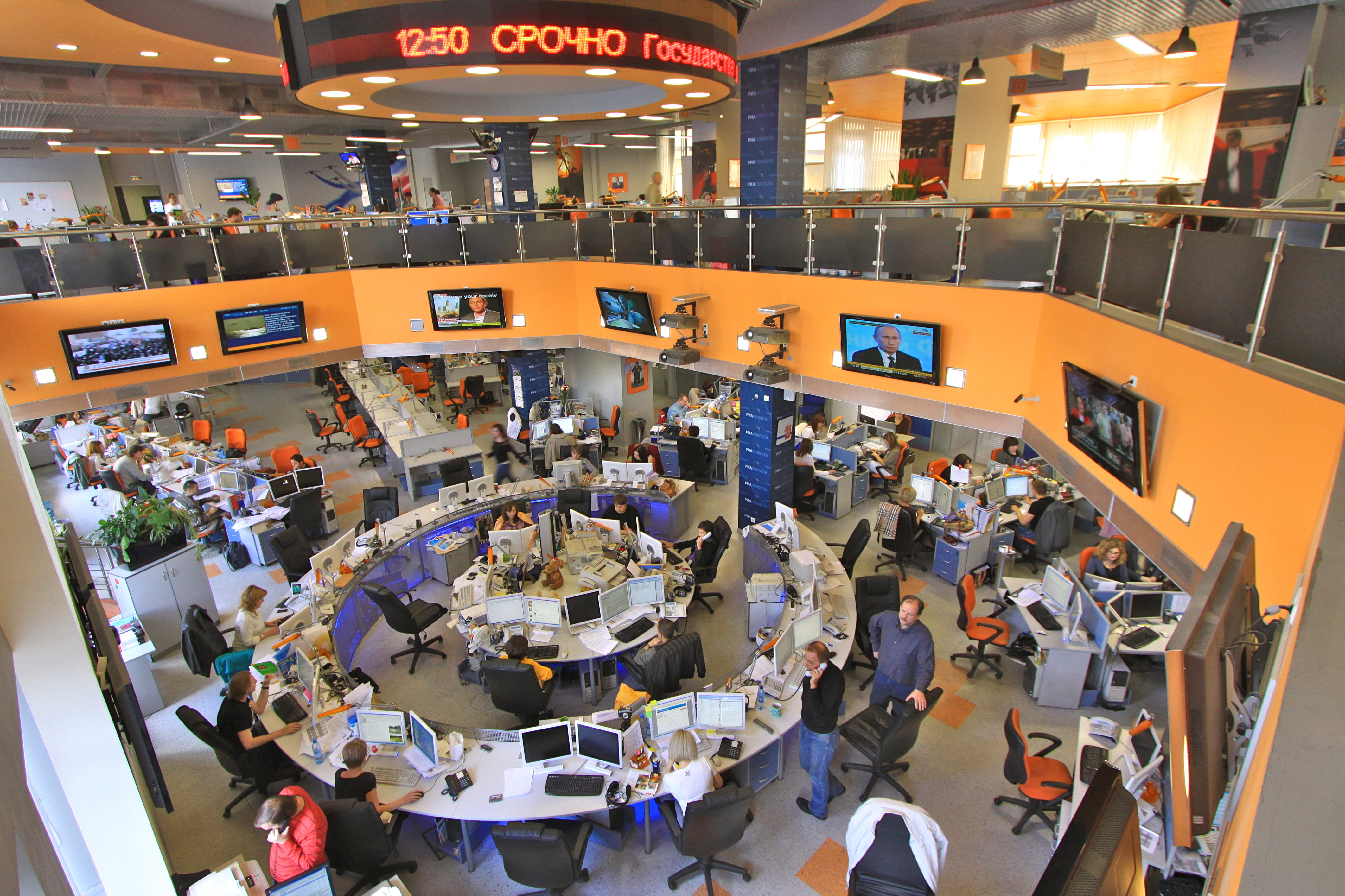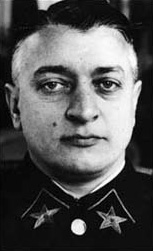|
Russian Military Deception
Russian military deception, sometimes known as ''maskirovka'' (russian: маскировка, lit=disguise), is a military doctrine developed from the start of the 20th century. The doctrine covers a broad range of measures for military deception, from camouflage to denial and deception. Deceptive measures include concealment, imitation with decoys and dummies, manoeuvres intended to deceive, denial, and disinformation. The 1944 ''Soviet Military Encyclopedia'' refers to "means of securing combat operations and the daily activities of forces; a complexity of measures, directed to mislead the enemy regarding the presence and disposition of forces..." Later versions of the doctrine also include strategic, political, and diplomatic means including manipulation of "the facts", situation, and perceptions to affect the media and opinion around the world, so as to achieve or facilitate tactical, strategic, national and international goals. Deception contributed to major Soviet victor ... [...More Info...] [...Related Items...] OR: [Wikipedia] [Google] [Baidu] |
Annexation Of Crimea By The Russian Federation
In February and March 2014, Russia invaded and subsequently annexed the Crimean Peninsula from Ukraine. This event took place in the aftermath of the Revolution of Dignity and is part of the wider Russo-Ukrainian War. The events in Kyiv that ousted Ukrainian president Viktor Yanukovych on 22 February 2014 sparked pro-Russian demonstrations as of 23 February against the (prospected) new Ukrainian government. At the same time Russian president Vladimir Putin discussed Ukrainian events with security service chiefs remarking that "we must start working on returning Crimea to Russia". On 27 February, Russian troops captured strategic sites across Crimea, followed by the installation of the pro-Russian Aksyonov government in Crimea, the Crimean status referendum and the declaration of Crimea's independence on 16 March 2014. Although Russia initially claimed their military was not involved in the events, Putin later admitted that troops were deployed to "stand behind Crimea ... [...More Info...] [...Related Items...] OR: [Wikipedia] [Google] [Baidu] |
Economics
Economics () is the social science that studies the production, distribution, and consumption of goods and services. Economics focuses on the behaviour and interactions of economic agents and how economies work. Microeconomics analyzes what's viewed as basic elements in the economy, including individual agents and markets, their interactions, and the outcomes of interactions. Individual agents may include, for example, households, firms, buyers, and sellers. Macroeconomics analyzes the economy as a system where production, consumption, saving, and investment interact, and factors affecting it: employment of the resources of labour, capital, and land, currency inflation, economic growth, and public policies that have impact on these elements. Other broad distinctions within economics include those between positive economics, describing "what is", and normative economics, advocating "what ought to be"; between economic theory and applied economics; between rational a ... [...More Info...] [...Related Items...] OR: [Wikipedia] [Google] [Baidu] |
Politics
Politics (from , ) is the set of activities that are associated with making decisions in groups, or other forms of power relations among individuals, such as the distribution of resources or status. The branch of social science that studies politics and government is referred to as political science. It may be used positively in the context of a "political solution" which is compromising and nonviolent, or descriptively as "the art or science of government", but also often carries a negative connotation.. The concept has been defined in various ways, and different approaches have fundamentally differing views on whether it should be used extensively or limitedly, empirically or normatively, and on whether conflict or co-operation is more essential to it. A variety of methods are deployed in politics, which include promoting one's own political views among people, negotiation with other political subjects, making laws, and exercising internal and external force, includ ... [...More Info...] [...Related Items...] OR: [Wikipedia] [Google] [Baidu] |
Strategy
Strategy (from Greek στρατηγία ''stratēgia'', "art of troop leader; office of general, command, generalship") is a general plan to achieve one or more long-term or overall goals under conditions of uncertainty. In the sense of the " art of the general", which included several subsets of skills including military tactics, siegecraft, logistics etc., the term came into use in the 6th century C.E. in Eastern Roman terminology, and was translated into Western vernacular languages only in the 18th century. From then until the 20th century, the word "strategy" came to denote "a comprehensive way to try to pursue political ends, including the threat or actual use of force, in a dialectic of wills" in a military conflict, in which both adversaries interact. Strategy is important because the resources available to achieve goals are usually limited. Strategy generally involves setting goals and priorities, determining actions to achieve the goals, and mobilizing resources to ... [...More Info...] [...Related Items...] OR: [Wikipedia] [Google] [Baidu] |
RIAN Archive 284 The War In Winter
RIA Novosti (russian: РИА Новости), sometimes referred to as RIAN () or RIA (russian: РИА, label=none) is a Russian state-owned domestic news agency. On 9 December 2013 by a decree of Vladimir Putin it was liquidated and its assets and workforce were transferred to the newly created Rossiya Segodnya agency. On 8 April 2014 RIA Novosti was registered as part of the new agency. RIA Novosti is headquartered in Moscow. The chief editor is Anna Gavrilova. Content RIA Novosti was scheduled to be closed down in 2014; starting in March 2014, staff were informed that they had the option of transferring their contracts to Rossiya Segodnya or sign a redundancy contract. On 10 November 2014, Rossiya Segodnya launched the Sputnik multimedia platform as the international replacement of RIA Novosti and Voice of Russia. Within Russia itself, however, Rossiya Segodnya continues to operate its Russian language news service under the name RIA Novosti with its ria.ru website. Th ... [...More Info...] [...Related Items...] OR: [Wikipedia] [Google] [Baidu] |
Winter War
The Winter War,, sv, Vinterkriget, rus, Зи́мняя война́, r=Zimnyaya voyna. The names Soviet–Finnish War 1939–1940 (russian: link=no, Сове́тско-финская война́ 1939–1940) and Soviet–Finland War 1939–1940 (russian: link=no, Сове́тско-финляндская война́ 1939–1940) are often used in Russian historiographybr>В.Н. Барышников. От прохладного мира к Зимней войне. Восточная политика Финляндии в 1930–е годы. Санкт-Петербург, 1997.; О.Д. Дудорова. Неизвестные страницы Зимней войны. In: Военно-исторический журнал. 1991. №9.; Зимняя война 1939–1940. Книга первая. Политическая история. М., 1998. – ; ttp://www.otvaga2004.narod.ru/photo/winterwar/wwar1.htm М. Коломиец. Танки в Зимней войне 19 ... [...More Info...] [...Related Items...] OR: [Wikipedia] [Google] [Baidu] |
Deep Battle
Deep operation (, ''glubokaya operatsiya''), also known as Soviet Deep Battle, was a military theory developed by the Soviet Union for its armed forces during the 1920s and 1930s. It was a tenet that emphasized destroying, suppressing or disorganizing enemy forces not only at the line of contact but also throughout the depth of the battlefield. The term comes from Vladimir Triandafillov, an influential military writer, who worked with others to create a military strategy with its own specialized operational art and tactics. The concept of deep operations was a national strategy, tailored to the economic, cultural and geopolitical position of the Soviet Union. In the aftermath of several failures or defeats in the Russo-Japanese War, First World War and Polish–Soviet War, the Soviet High Command (''Stavka'') focused on developing new methods for the conduct of war. This new approach considered military strategy and tactics, but also introduced a new intermediate level of milita ... [...More Info...] [...Related Items...] OR: [Wikipedia] [Google] [Baidu] |
Golden Horde
The Golden Horde, self-designated as Ulug Ulus, 'Great State' in Turkic, was originally a Mongol and later Turkicized khanate established in the 13th century and originating as the northwestern sector of the Mongol Empire. With the fragmentation of the Mongol Empire after 1259 it became a functionally separate khanate. It is also known as the Kipchak Khanate or as the Ulus of Jochi, and replaced the earlier less organized Cuman–Kipchak confederation. After the death of Batu Khan (the founder of the Golden Horde) in 1255, his dynasty flourished for a full century, until 1359, though the intrigues of Nogai instigated a partial civil war in the late 1290s. The Horde's military power peaked during the reign of Uzbeg Khan (1312–1341), who adopted Islam. The territory of the Golden Horde at its peak extended from Siberia and Central Asia to parts of Eastern Europe from the Urals to the Danube in the west, and from the Black Sea to the Caspian Sea in the south, while border ... [...More Info...] [...Related Items...] OR: [Wikipedia] [Google] [Baidu] |
Dmitry Donskoy
Saint Dmitry Ivanovich Donskoy ( rus, Дми́трий Ива́нович Донско́й, Dmítriy Ivanovich Donskóy, also known as Dimitrii or Demetrius), or Dmitry of the Don, sometimes referred to simply as Dmitry (12 October 1350 – 19 May 1389), son of Ivan II the Fair of Moscow (1326–1359), reigned as the Prince of Moscow from 1359 and Grand Prince of Vladimir from 1363 to his death. He was the first prince of Moscow to openly challenge Mongol authority in Russia. He is regarded as a national hero and central figure of the Russian Middle Ages. His nickname, Donskoy ("of the Don"), alludes to his great victory against the Tatars in the Battle of Kulikovo (1380), which took place on the Don River. He is venerated as a Saint in the Orthodox Church with his feast day on 19 May. Early reign Dmitry was born in Moscow in 1350, the son of Ivan the Fair, Grand Prince of Moscow, and his second wife, Alexandra Vassilievna Velyaminova, the daughter of the mayor of Mosco ... [...More Info...] [...Related Items...] OR: [Wikipedia] [Google] [Baidu] |
Battle Of Kulikovo
The Battle of Kulikovo (russian: Мамаево побоище, Донское побоище, Куликовская битва, битва на Куликовом поле) was fought between the armies of the Golden Horde, under the command of Mamai, and various Russian principalities, under the united command of Prince Dmitry of Moscow. The battle took place on 8 September 1380, at the Kulikovo Field near the Don River (now Tula Oblast, Russia) and was won by Dmitry, who became known as russian: script=Latn, Donskoy, label=none, lit=of the Don after the battle. Although the victory did not end Mongol domination over Rus, it is widely regarded by Russian historians as the turning point at which Mongol influence began to wane and Moscow's power began to rise. The process eventually led to Grand Duchy of Moscow independence and the formation of the modern Russian state. Background After the Mongol-Tatar conquest, the territories of the disintegrating Kievan Rus became pa ... [...More Info...] [...Related Items...] OR: [Wikipedia] [Google] [Baidu] |
Sun Tsu
Sun Tzu ( ; zh, t=孫子, s=孙子, first= t, p=Sūnzǐ) was a Chinese military general, strategist, philosopher, and writer who lived during the Eastern Zhou period of 771 to 256 BCE. Sun Tzu is traditionally credited as the author of ''The Art of War'', an influential work of military strategy that has affected both Western and East Asian philosophy and military thinking. Sun Tzu is revered in Chinese and East Asian culture as a legendary historical and military figure. His birth name was Sun Wu ( zh, t=孫武, s=孙武, first=t) and he was known outside of his family by his courtesy name Changqing ( zh, t=長卿). The name ''Sun Tzu'' by which he is more popularly known is an honorific which means "Master Sun". Sun Tzu's historicity is uncertain. The Han dynasty historian Sima Qian and other traditional Chinese historians placed him as a minister to King Helü of Wu and dated his lifetime to 544–496 BCE. Modern scholars accepting his historicity place the extant text of ... [...More Info...] [...Related Items...] OR: [Wikipedia] [Google] [Baidu] |





.jpg)

